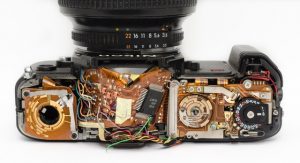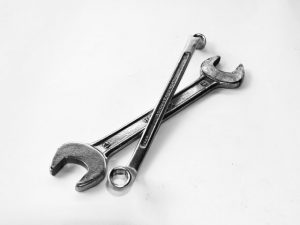The Chinese Mennonite Church was changed into a makeshift three-hour workshop last weekend as volunteers tinkered with technology, house appliances and much more in the church’s first repair café. Fix Café, a roving incarnation of a global DIY initiative based in Amsterdam in 2009, brings together volunteers that provide free repair services each month.
 For those who enjoy fixing things, it’s a whole lot of personal satisfaction and a good deal of fun. Fern Mosoff, co-founder of the town’s fix café, said that the pursuit of the appliance repair service is enjoyable, the cooperation – the experience of fixing together – is entertaining … It actually appeals to the fix-it audience. This community-centric strategy appealed to the church, and it got connected with Fix Café if Sandy Yeun, among its own volunteers, stumbled upon an occasion.
For those who enjoy fixing things, it’s a whole lot of personal satisfaction and a good deal of fun. Fern Mosoff, co-founder of the town’s fix café, said that the pursuit of the appliance repair service is enjoyable, the cooperation – the experience of fixing together – is entertaining … It actually appeals to the fix-it audience. This community-centric strategy appealed to the church, and it got connected with Fix Café if Sandy Yeun, among its own volunteers, stumbled upon an occasion.
She explained that it reminded her of her dad’s generation, referring to the Do-it-yourself ethos that awakens at the events, which concentrate mostly on family appliance and clothing repairs but volunteers also take on additional odd jobs such as repairing ornaments and small laminated timber products. Aaron Shindman, a program programmer, is just one of Repair Café’s 500 volunteers. In the events he frequently uses skills he learned while researching manufacturing technology. A region of the group since it started in May 2013, Shindman has his reasons for coming back again and again. What appeals to him is taking things apart, and perhaps fixing them – if you are lucky.
Jessica Beketa, who recently moved cities, arrived at the café to get an amp fixed and also because she’d begun a similar initiative, Repair Things, in her former residence town. It is something which she has been passionate about since she thought of it from an environmental standpoint. Everybody sees recycling as a great alternative but repair is obviously one-up. In addition to repairing things, the volunteer team need apprentice fixers so they can learn new abilities from someone more experienced. Co-founder Mosoff said that since it is a really collaborative fix experience, individuals share knowledge.
 After all, one man’s garbage is another man’s treasure. For Mthunzi Qagana, the saying is his reality, and became the key to his rise from road dweller to company owner. Qagana said they turn rubbish into gold. He refurbishes used and broken appliances and sells them at an inexpensive price. Qagana discovered his market due to Your Appliance Bank, a programme conducted by the non-profit organisation The Clothing Bank. The appliance programme provides jobless men the chance to operate their own companies by providing them appliance repair training and business skills in the industry they hope to compete in, from offering timber engineered custom to general lighting repairs.
After all, one man’s garbage is another man’s treasure. For Mthunzi Qagana, the saying is his reality, and became the key to his rise from road dweller to company owner. Qagana said they turn rubbish into gold. He refurbishes used and broken appliances and sells them at an inexpensive price. Qagana discovered his market due to Your Appliance Bank, a programme conducted by the non-profit organisation The Clothing Bank. The appliance programme provides jobless men the chance to operate their own companies by providing them appliance repair training and business skills in the industry they hope to compete in, from offering timber engineered custom to general lighting repairs.
Qagana was residing on the streets of the major city only a couple years ago, finding foods in garbage bins. He explained how when he had been on the road he had to figure out ways to live. Qagana came the city in 1998 after falling out of college, where he was a standout singer. Finding no job in the city, he started living on the streets, with his ability to make some cash. Subsequently Qagana determined he wanted more from his life.
He explained that it was his 18th birthday. It was chilly and he was determined he wanted to changed. Qagana moved along with his church-going uncle, who helped him enroll in college. He ended Grade 12 when I was 22, but he was proud of himself. Following a stint as a ranger in Table Mountain National Park, he started to search for ways to begin his own company and came across The Appliance Bank programme on Facebook. He did not understand anything about appliances, particularly about gas and electrical services, but he chose to take the chance. That’s where his life changed.
He’s currently among 50 participants at the programme. Although retailers, for example Clicks and Shoprite, contribute busted, returned or surplus inventory to the programme, Qagana said obtaining sufficient appliances to fix was a struggle – they want more suppliers.
The Appliance Bank also accepts donations of fresh or broken appliances. Qagana Is also having his chance to return to his community. Once he gets home, he says he will teach men business skills that he knows here so that they can head out and do something. He will go there and promote them. He has a computer school now, and is training youth in the area so they have the ability to head out and search for jobs. He stated that it is called Bright Future Youth IT Centre, and explained how he’s glad that he can help someone considering how he had been helped to escape from the life that he had been living.